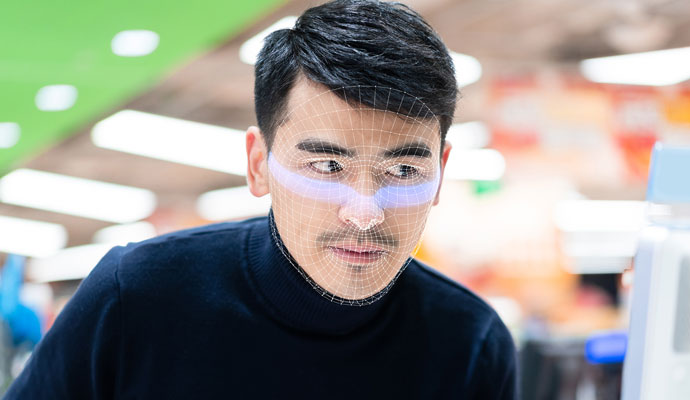The cyborg behind the sales counter

The 2015 opening of the Henn-na Hotel in Nagasaki, Japan, was staffed almost entirely by 243 robots, hailed as a milestone in bringing artificial intelligence (AI) to customer service. What a disappointment, then, when a few years later, the hotel laid off more than half of those robot workers and hired humans in part because customers found the robots annoying, unreliable, and off-putting. It’s a result that the authors of a new study on human enhancement technology (HET) might have predicted.
Even before COVID forced businesses to think about how to serve customers in a safe, contact-free way, firms were turning to AI to streamline and enhance service. There are increasingly humanlike robots who sell coffee, wait tables, and work as hotel bellhops at trial locations around the world. But more frequently, rather than going full robot, employees are equipped with HET devices. It’s not unusual for doctors to wear smart glasses that stream patient data during appointments, for example, or for car rental service representatives to don headsets for faster communication with AI virtual agents or bots about vehicle availability. Similarly, research is underway on how bionic lenses could aid logistics workers, and how wearable monitors could provide real-time feedback about employees’ changing stress levels or underlying health conditions. There are even emotion-detecting devices in the works that could sense prospective customers’ moods.
Electric Powered Construction Machines Continue to Grow Exponentially in 2022
Manufacturers are looking towards electrically powered construction machines now more than ever…
0 Comments5 Minutes
September 1, 2023
4 Key Advantages of Outsourcing Your IT Department
IT,Technology,Cybersecurity,Digital Marketing,Outsourcing
Outsourcing refers to the process of hiring a third-party company to manage all or part of your…
0 Comments6 Minutes
November 9, 2022
Fortress HR: Why Your CHRO Should Be Leading On Cybersecurity
Technology,Cybersecurity,Leadership
Retail brokerage Robinhood was on a tear in 2021. Buoyed by a surging stock market and torrents of…
0 Comments1 Minutes
June 17, 2022
6 Best Business Management Software
Any company must-have business management software to run any type of business. Because good…
0 Comments9 Minutes
June 14, 2022